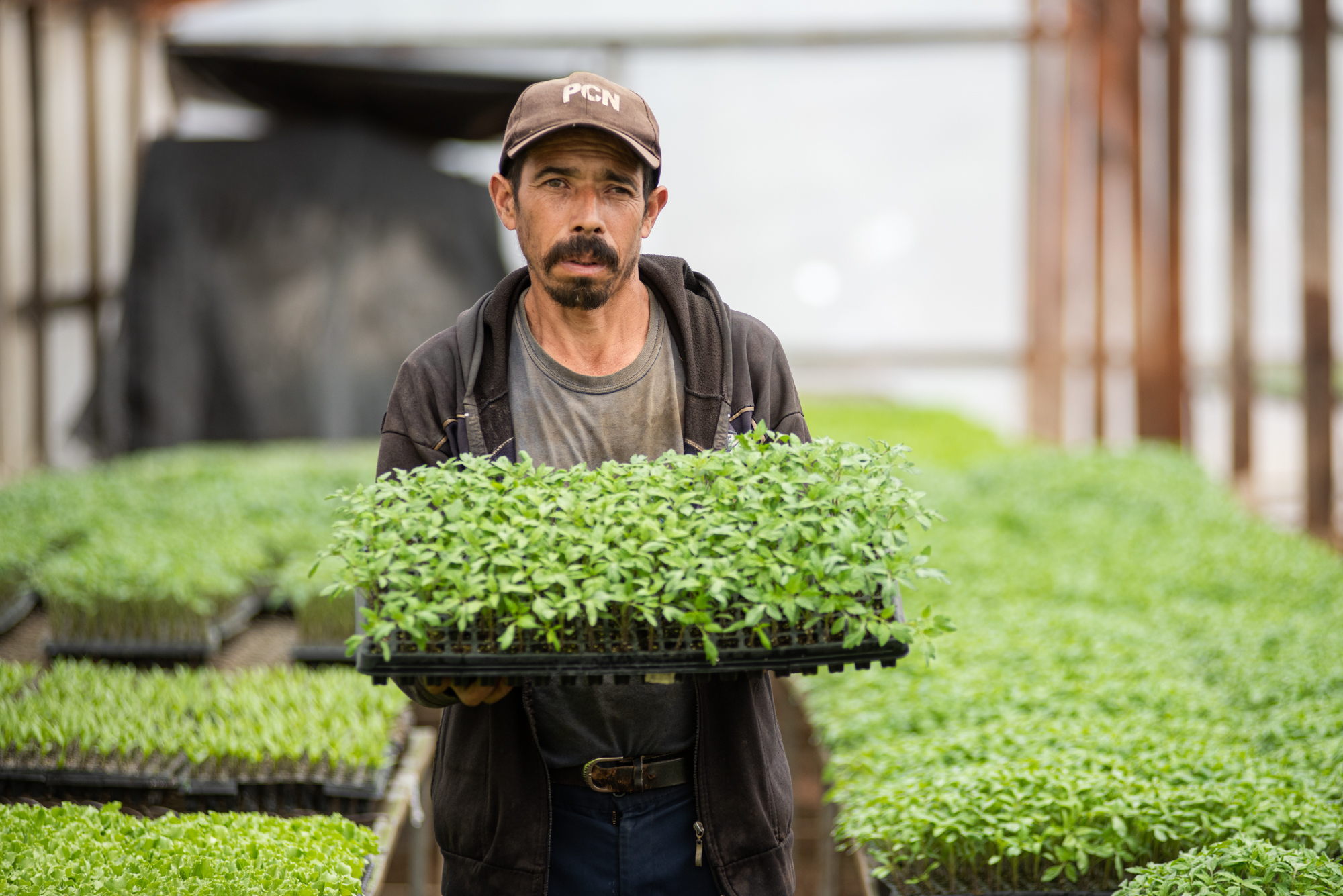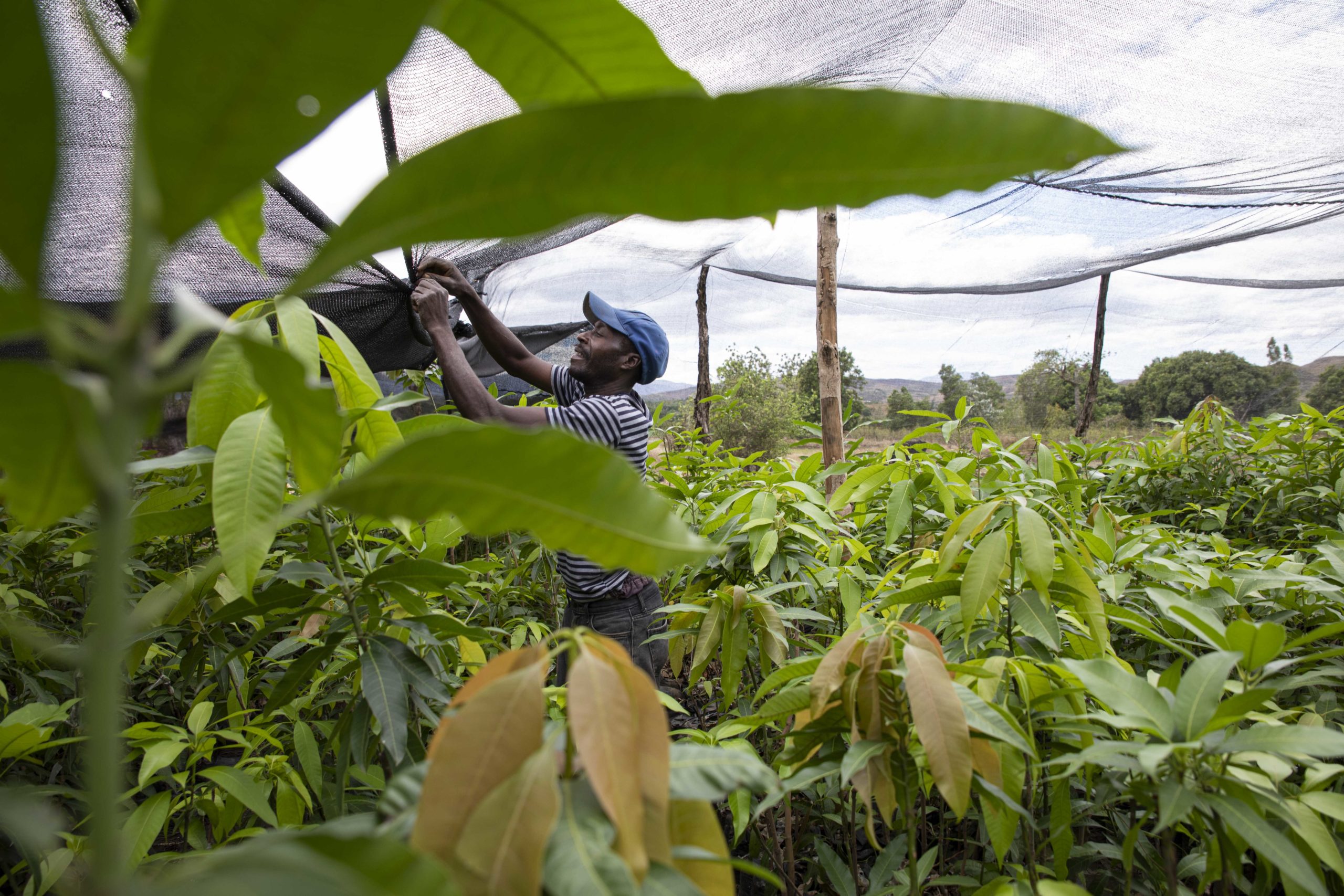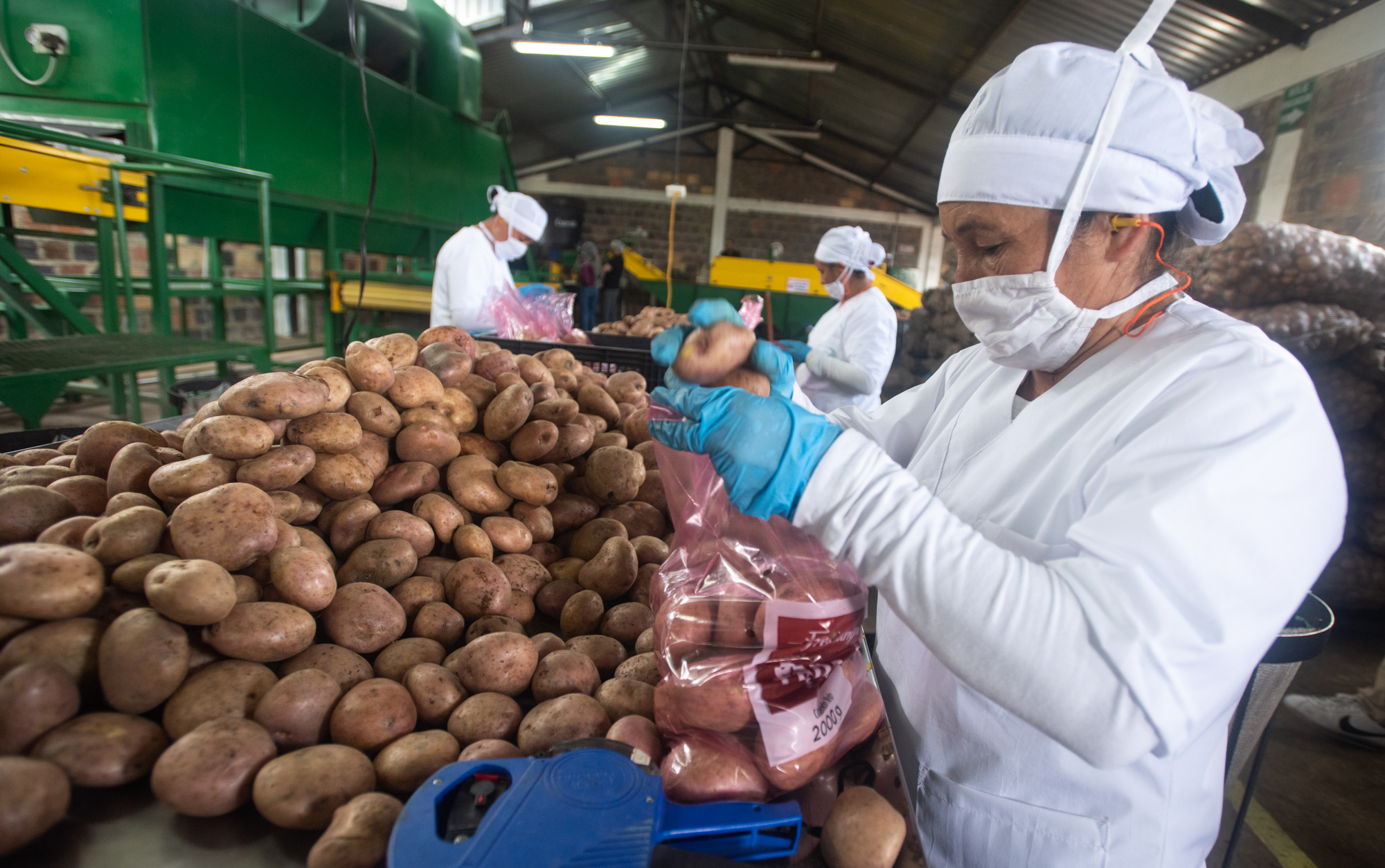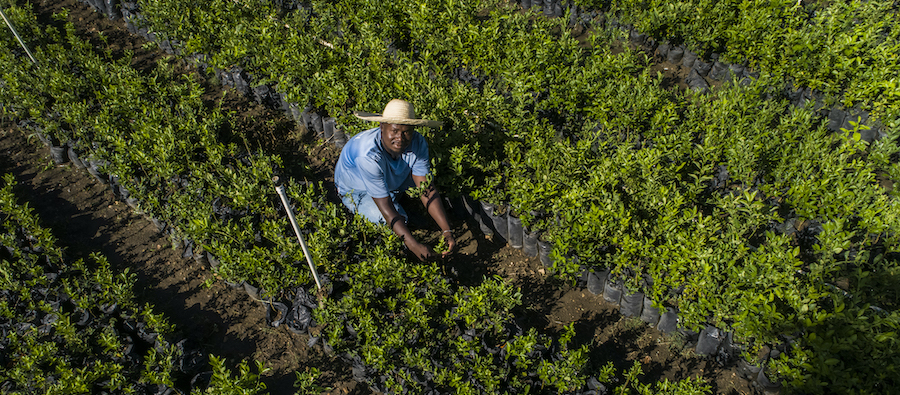We have always considered it a matter of economic injustice that smallholder farmers around the world are often excluded from formal domestic markets – yet millions are.
In many developing countries, the poor – mostly involved in agriculture – are concentrated in rural areas, while nearby urban centres continue to rapidly expand. These urban centres often import food, as large food buyers like supermarkets prefer to avoid trading with fragmented or informal food channels.
As a result of this disconnect from formal, domestic markets, smallholder farmers typically sell to informal intermediaries, without guarantees of purchase volumes or fair prices. This contributes to poverty amongst many farmers, which we consider economic injustice.

Photo credit: Acceso / Paramo Films
From a poverty alleviation perspective, we therefore aim at Acceso to not only improve the productivity of smallholder farmers, but to manage the entire supply chain and connect them to formal markets. We do this through building social agribusinesses.
With the sudden onset of Covid-19, our agribusinesses in Colombia, El Salvador, and Haiti were put to the test, having to adapt to new operational requirements while responding to extreme market volatility. Yet thanks to the hard work of our teams and farmers, our local food supply chains have not only been able to meet critical commercial demand, but also feed thousands of vulnerable communities impacted by the pandemic, while continuing to provide economic resilience to rural communities.
From our experience, we have a number of key learnings to share with others operating in the smallholder agriculture sector.

Photo credit: Acceso / Paramo Films
To develop local food systems that tackle economic injustice and are sufficiently robust to withstand crises like Covid-19, efficient management and investments are needed across entire supply chains
Many essential agricultural interventions train farmers, help them improve agricultural productivity, or provide them with credit to invest in equipment, seeds and other assets that they need. But these interventions alone are insufficient.
Farmers’ incomes will not improve sustainably over the long term without coordinated interventions across entire supply chains. Establishing stable market connections enables farmers to consistently sell crops at higher prices, while end-to-end supply chain management allows participants to share agricultural margins more fairly, ensures actors can quickly adapt to meet changing market needs, provides buyers with transparency and enables operational problems to be spotted and fixed.
For example, amidst this pandemic, we recognised the urgent need for coordinated Covid-19 contamination prevention measures – from crop harvest to delivery. To maintain safety and quality for supermarket clients while ensuring farmers’ needs were met, our agribusinesses were able to quickly implement these new measures, as end-to-end value chain management was already in place.
Holistic approaches to interventions across value chains can also be achieved through deep partnerships that ensure all farmers’ needs are met.
Further strategic investments to strengthen supply chains might include targeted technical assistance, farmer credit systems, production and processing equipment, and aggregation centres. Governments and the private sector can play a key role by investing in agriculture-based enterprises, committing to local sourcing that pays farmers fairly, and establishing policies and programmes that make it easier for farmers to formally trade in-country.

Photo credit: Acceso / Paramo Films
Once robust food systems are in place, they can be leveraged to respond to crisis situations like Covid-19
Although commercial channels remain key for local food producers, crises like the current pandemic can lead to increased demand from humanitarian actors too. In Colombia, for instance, local organisations operating along the Colombia-Venezuela border require ongoing supplies of fresh food, to feed more than 1.8 million Venezuelans in the country.
With funding from the Giustra Foundation and other donors, our agribusinesses purchase and aggregate highly nutritious produce from farmers, which does not meet supermarket appearance requirements, then deliver it to 90 feeding programmes and kitchens in Colombia and Venezuela. This is then used to feed tens of thousands of Venezuelans weekly – a need which has only increased during Covid-19 as many migrants’ jobs disappeared and they faced challenges returning home.
Indeed, pandemic restrictions have given us a glimpse into the necessity of having strong local food systems. Countries would be able to respond in a timely way to crises and feed their populations, while generating income for farmers. More investments in local food systems are therefore needed to weather Covid-19 and many future challenges, including natural disasters and climate-related stresses.
In the spirit of responsibly preparing for the future, we believe that we must all – civil society, governments, the private sector, social enterprises and multilaterals – play an ongoing role and work together to not just invest in local food systems, but also provide economic justice for the smallholder farmers at their heart.



